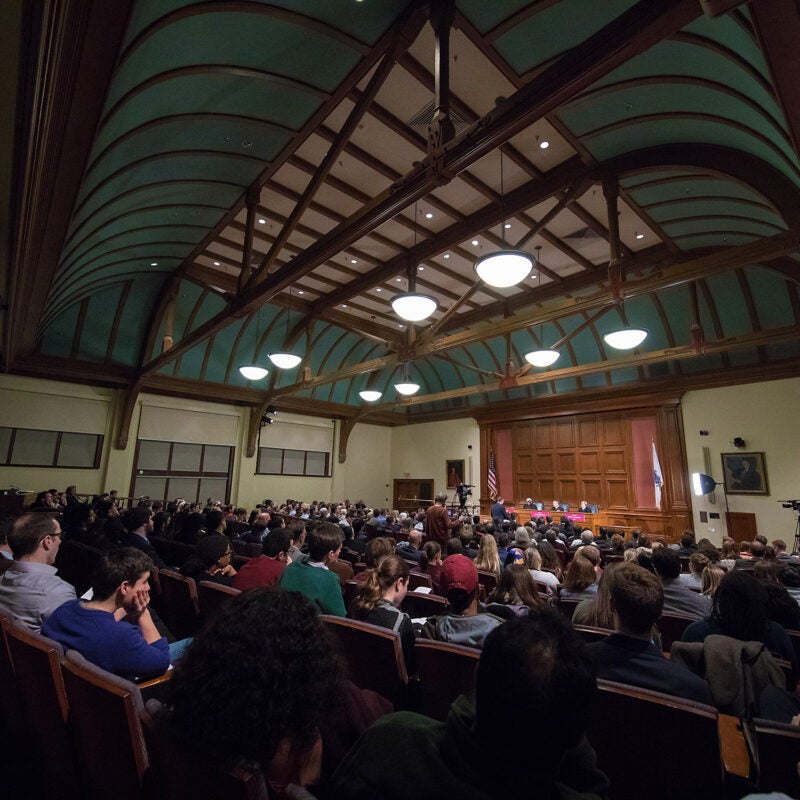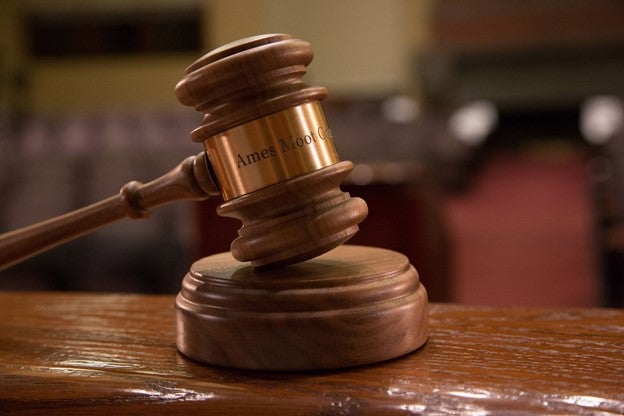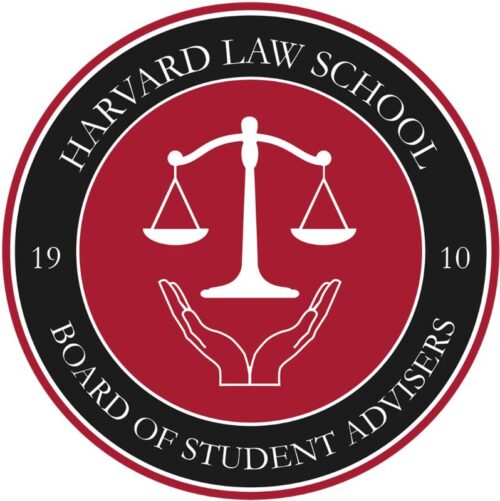About The BSA
The BSAs are charged with providing several essential services to the Harvard Law School community: we serve as teaching assistants in the First Year Legal Research and Writing Program, as peer advisers to members of the first-year class and transfer students, and as administrators of the Ames Moot Court competition.
The Board is a highly selective organization. Members are recommended from a broad pool of applicants by a committee of sitting Board members based on editing and mentoring skills, prior work or teaching experience, and a personal statement essay. Taken together with first-year grades, advice and comment by faculty members and fellow BSAs, the head of the First Year Legal Writing program reviews these recommendations to arrive at the final admission decision.
Ames Moot Court
Upper-Level Ames
The Upper-Level Ames Moot Court Competition was established in 1911 as the result of a bequest by the late Dean James Barr Ames. The Board of Student Advisers is charged with administrating the Competition, which over the years has become one of the most-anticipated events on the Harvard Law School calendar.
The Competition takes place in three rounds, beginning with the Qualifying Round (held in the fall of competitors’ 2L year), followed by the Semi-Final Round (held in the spring of competitors’ 2L year), and culminating in the Final Round (held in the fall of competitors’ 3L year).
Please email ameshls@gmail.com with questions.
2022 Competition
Final Round:
Thursday, November 10, 2022
7:30 p.m., Ames Courtroom
2022 Final Round Materials
1L Ames
The First Year Ames Moot Court serves as the academic focus of first-year students’ second semester of Legal Research and Writing (LRW). All first-year J.D. students participate: the work of briefing and arguing a case is an essential part of a Harvard legal education and helps students develop critical skills in argument and logic.
In the First Year Ames Moot Court, students work in pairs to compose briefs on the merits of a hypothetical appellate case. Cases are assigned by students’ Legal Research and Writing instructors, the Climenko Fellows. The Fellows, together with members of the Board of Student Advisers who serve as teaching assistants, teach students how to research and write their briefs and help them prepare for oral arguments.
Students’ briefs are graded by their Climenko Fellows. Students do not receive formal grades for their oral argument performance, but they do receive feedback from their judging panel (consisting of a faculty member, an attorney, and an upper-level student).


